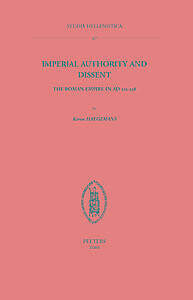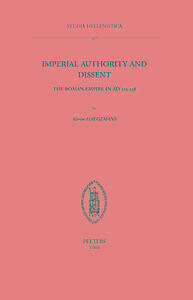
- Afhalen na 1 uur in een winkel met voorraad
- Gratis thuislevering in België vanaf € 30
- Ruim aanbod met 7 miljoen producten
- Afhalen na 1 uur in een winkel met voorraad
- Gratis thuislevering in België vanaf € 30
- Ruim aanbod met 7 miljoen producten
Zoeken
Omschrijving
When Severus Alexander came to a brutal end in the spring of AD 235, his successor Maximinus certainly did not meet with the approval of all his subjects. Nil novi sub sole... After all, which Roman emperor was universally loved and admired? Yet few emperors received as bad a press as Maximinus and no other legitimate emperor was as bluntly dismissed by the senate. In AD 238, a revolt that had been slumbering since Maximinus' accession flared up. African landowners chose the old proconsul of Africa Proconsularis, M. Antonius Gordianus, to lead their cause. The senate in Rome was quick to support the counter-emperor and played an important role in the ensuing events. Many reasons for the uprising and the senate's response can be found: tax pressure, confiscations and the corruption of state officials, ideological reasons, power politics, personal ambitions, personal networks ... These are not isolated tendencies, though. Society was gradually changing, with an increasing instability of imperial power, frontier wars, a growing military power, a growing social mobility, causing tensions between various social groups, and the imbalance between state income and expenditure, especially as a result of the growing cost of the army. All these factors contributed to the unstable situation of AD 238.
Specificaties
Betrokkenen
- Auteur(s):
- Uitgeverij:
Inhoud
- Aantal bladzijden:
- 276
- Taal:
- Engels
- Reeks:
- Reeksnummer:
- nr. 47
Eigenschappen
- Productcode (EAN):
- 9789042921511
- Verschijningsdatum:
- 5/02/2010
- Uitvoering:
- Paperback
- Formaat:
- Trade paperback (VS)
- Afmetingen:
- 152 mm x 239 mm
- Gewicht:
- 521 g

Alleen bij Standaard Boekhandel
+ 140 punten op je klantenkaart van Standaard Boekhandel
Beoordelingen
We publiceren alleen reviews die voldoen aan de voorwaarden voor reviews. Bekijk onze voorwaarden voor reviews.











